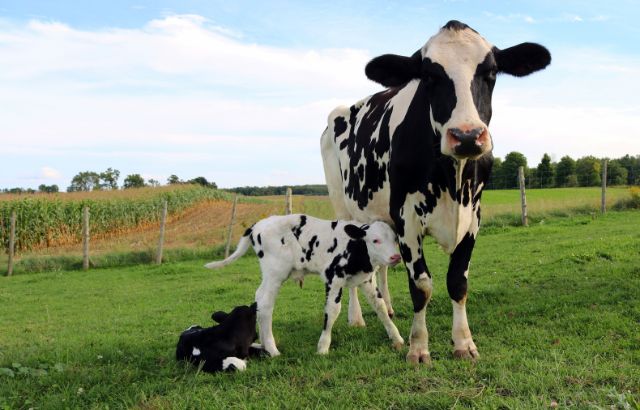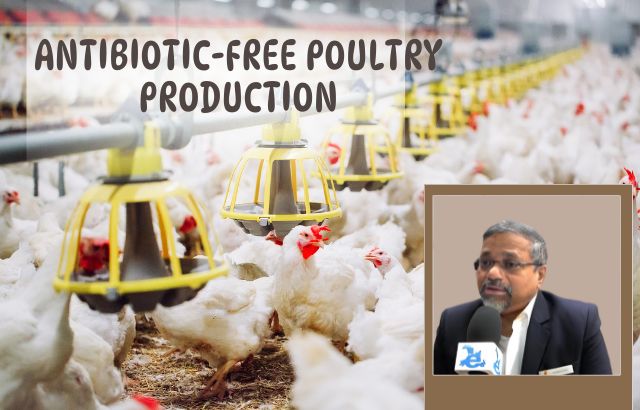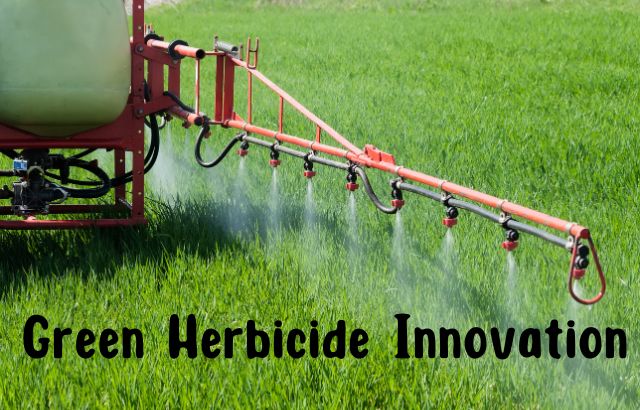Raising healthy calves is the foundation of a successful dairy or beef operation. Immune health plays a crucial role in ensuring that these young animals grow into strong, productive adults. However, calves are particularly vulnerable during the first few weeks of life due to their immature immune systems. Ensuring they have a strong start involves providing them with the right nutrition, care, and environmental conditions.
In this blog, we’ll delve into the importance of calf immune health, explore innovative green solutions to boost it, and provide practical tips for farmers. We’ll also examine some fascinating statistics and calculations from the world of calf health and how green innovators are shaping the future of animal agriculture.
The Vulnerability of Newborn Calves
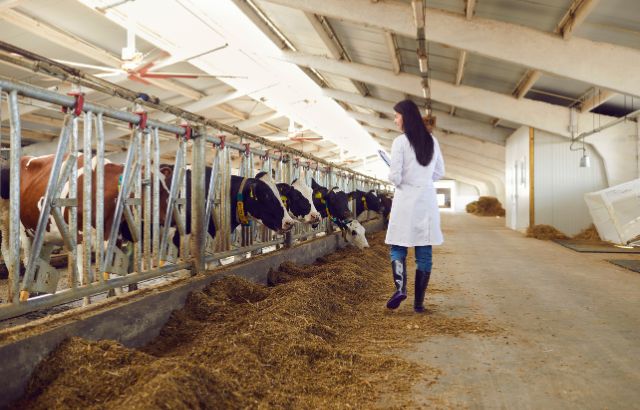
At birth, calves have very little passive immunity since they are born without the ability to produce antibodies. They rely entirely on colostrum (the first milk produced by cows) to provide these antibodies, which protect them from infections and diseases. The first few hours of life are critical; if they do not ingest enough colostrum, their chances of surviving and thriving can drastically decrease.
Key Stats:
- Colostrum absorption: Calves must consume at least 10% of their body weight in colostrum during the first six hours to achieve adequate passive immunity.
- Early life mortality rates: Without sufficient colostrum, mortality rates in calves can be as high as 30% in the first 30 days of life.
This makes the early care of calves one of the most important practices in any farm’s health management program.
The Role of Green Innovators in Calf Immune Health
As the world increasingly turns to sustainable farming practices, green innovators are leading the way in finding eco-friendly and efficient ways to enhance calf health. Green innovation not only focuses on reducing environmental impact but also includes sustainable and scientifically-backed solutions to improve the resilience of farm animals, including calves.
Sustainable Nutrition and Immune Boosting
Green innovators are exploring ways to provide organic and natural supplements that enhance a calf’s immune response. For instance, bioactive compounds found in seaweed and herbal plants have been shown to improve immune function in animals. Products such as green seaweed powder are being used to boost the calf’s gut health, which is directly linked to their immune system.
Example:
- Green Seaweed: Rich in polysaccharides, bioactive compounds, and antioxidants, green seaweed products help balance the gut microbiota in calves, leading to enhanced immunity.
- Herbal Immunomodulators: Plants like echinacea and garlic have been used in supplements to enhance the immune system’s response to pathogens.
Green innovators also advocate for integrated pest management to reduce the use of harmful chemicals in calf care, promoting a healthier environment for the animals.
Precision Feeding: Reducing Waste and Enhancing Immunity
One of the key green innovations in calf care is precision feeding. By using smart sensors and data analytics, farmers can deliver personalized diets for each calf, reducing waste while ensuring optimal nutrition. Precision feeding not only reduces costs but also ensures that calves receive the necessary nutrients to build a strong immune system.
Example:
- Smart Feeding Systems: Automated systems that track a calf’s intake and adjust the diet according to their specific growth stage and health needs. These systems ensure that calves get the right balance of protein, fats, and vitamins necessary for immune health.
Environmental Factors and Their Impact on Immunity
In addition to nutrition, environmental factors such as housing, air quality, and stress management significantly influence calf health. Green innovators are promoting low-emission buildings, improved ventilation systems, and natural bedding materials to reduce the risk of respiratory diseases and other health problems in calves.
Example of Environmental Innovation:
- Low-Emission Barns: By using renewable energy sources like solar power, as well as materials with natural insulating properties, farmers can maintain a consistent, stress-free environment for calves.
- Compost Bedding: Made from renewable plant materials, compost bedding is not only eco-friendly but also reduces the risk of pathogens that can affect a calf’s immune system.
Calculations from Green Innovators: How Green Innovations Improve Immune Health
Colostrum Intake Calculations:
Let’s consider a calf weighing 40 kg at birth. According to guidelines, the calf should consume 10% of its body weight in colostrum within the first six hours.
- 10% of 40 kg = 4 kg of colostrum needed.
- If a farm is using precision-feeding technology to provide colostrum, the system can track the intake in real-time, ensuring the calf receives exactly 4 kg without over or under-feeding.
Impact of Herbal Immunomodulators:
Studies show that adding herbal supplements such as echinacea to a calf’s diet can reduce the incidence of respiratory diseases by as much as 25%. If a herd of 100 calves experiences respiratory issues at a rate of 40%, implementing echinacea could reduce that number to 30 calves.
- Without echinacea: 100 calves × 40% = 40 calves with respiratory issues.
- With echinacea: 100 calves × 25% = 25 calves with respiratory issues.
This reduction results in healthier calves, fewer veterinary bills, and a more sustainable approach to farm management.
Ask Jaiguru-FAQs on Calf Immune Health
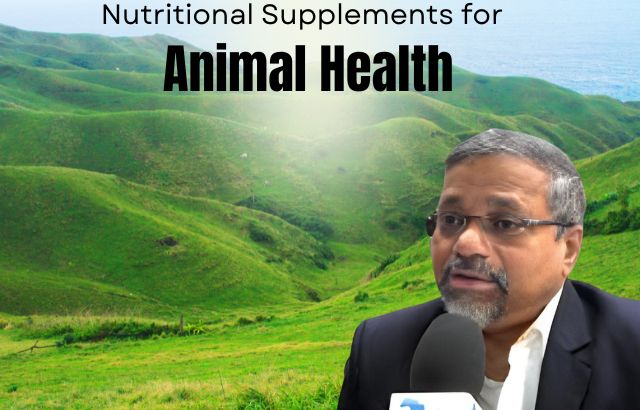
1. What is the best time to provide colostrum to a newborn calf?
The ideal time for a calf to receive colostrum is within two hours of birth, with a second feeding within six hours. The first colostrum intake should provide at least 10% of the calf’s body weight.
2. Can adding herbal supplements help improve immune function in calves?
Yes! Herbal supplements like echinacea, garlic, and seaweed are proven to boost immune function and reduce susceptibility to infections in calves, particularly when integrated into the diet early in life.
3. How can farmers reduce calf mortality?
Farmers can reduce calf mortality by ensuring adequate colostrum intake, maintaining a clean and well-ventilated environment, and adopting green technologies like precision feeding systems that optimize nutrition.
4. What role does stress play in a calf’s immune system?
Stress can suppress the immune system, making calves more susceptible to diseases. Ensuring that calves are raised in a low-stress environment with adequate space, proper nutrition, and good care is crucial for their health.
5. How can green innovations help reduce the environmental impact of calf farming?
Green innovations like low-emission barns, solar-powered systems, and sustainable bedding materials help reduce the carbon footprint of calf farming while promoting healthier animals through better environmental conditions.
Conclusion: A Green Future for Calf Health
The health of calves is a cornerstone of successful livestock farming. As the industry moves toward more sustainable practices, green innovations are providing farmers with the tools they need to boost calf immunity, reduce environmental impact, and improve overall herd health. From precision feeding and herbal supplements to low-emission barns and eco-friendly practices, these innovations not only enhance calf health but also pave the way for a more sustainable future in agriculture.
By adopting these strategies, farmers can ensure their calves get the best start in life, contributing to healthier animals, a healthier farm, and a healthier planet.

